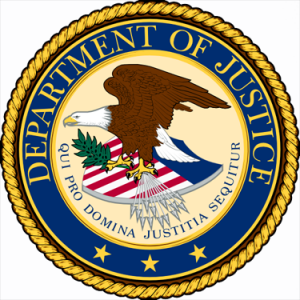Two recent cases illustrate that the United States government’s push against alleged instances of illicit tech transfer to China continues unabated. On January 14, the U.S. attorney’s office in Massachusetts announced that a mechanical engineering professor at the Massachusetts Institute of Technology (MIT) was arrested and charged with wire fraud, failing to file a foreign bank account report, and making a false statement in a tax return, in relation to his alleged relationships with Chinese entities. The day before, on January 13, a chief scientist at NASA’s Ames Research Center plead guilty to one count of making false statements about his relationship with the Chinese government in the Manhattan federal court in New York.
According to the Justice Department statement announcing MIT professor Gang Chen’s arrest, he “has allegedly held various appointments with the PRC designed to promote the PRC’s technological and scientific development by providing advice and expertise – sometimes directly to PRC government officials – and often in exchange for financial compensation.” The statement specified that Chen had acted as an “overseas expert” for China’s government “at the request of the PRC Consulate Office in New York” and served “as a member of at least two PRC Talent Programs,” receiving almost $29 million in research funding.
The Justice Department alleges that Chen — a nanotechnology specialist, Carl Richard Soderberg Professor of Power Engineering and the director of the MIT Pappalardo Micro/Nano Engineering Laboratory — failed to disclose this information as part of his (successful) grant application to the U.S. Department of Energy. It has also charged Chen with failing to disclose that he held a bank account in China with more than $10,000 in it in his 2018 income tax return.
In a January 14 letter to the community, MIT President L. Rafael Reif noted that “For all of us who know Gang, this news is surprising, deeply distressing and hard to understand,” going to also note that “for our community, any charge of this kind is a matter of great seriousness and concern.”
Separately, on January 13 the U.S. Attorney’s Office, Southern District of New York, announced that Meyya Meyyappan, chief scientist in exploration technology at the Center for Nanotechnology, NASA’s Ames Research Center, pleaded guilty to making false statements to the NASA Office of Inspector General, the Federal Bureau of Investigation, and the U.S. Attorney’s Office about his association with China’s Thousand Talents Program as well as a professorship at a Chinese university supported through Chinese government funding.
The Justice Department’s statement on the case quoted FBI Assistant Director William F. Sweeney Jr. as saying:
Members of U.S. government agencies are strictly prohibited from maintaining undisclosed affiliations with foreign entities, especially those that are actively seeking our intellectual property and technological advances. Meyyappan violated this sacred rule, and then lied to FBI agents about it. Actions like those carried about by Meyyappan can have security implications, and his charges should serve as a warning to others thinking about engaging in the same type of activity.
Meyyappan has worked at NASA since 1996. In August last year, the Justice Department also charged a Texas A&M University professor, Zhengdong Cheng, who was working on a NASA project, for concealing his association with Chinese entities, including the Guangdong University of Technology.
Almost exactly a year ago, in January 2020, the head of Harvard University’s chemistry department, Charles M. Lieber, was arrested on charges of making false statements about his association with China’s Thousand Talents program and financial relationship with the Chinese government. Along with Lieber, federal authorities also charged Harvard-affiliated cancer specialist Zaosong Zheng, and a scientist associated with Boston University till 2019, Yanqing Ye, with related and additional crimes.
In 2018, the Justice Department launched its “China Initiative” to counter tech espionage by, and illicit transfer of technology to, China. Since then, it has aggressively pursued such cases, often zeroing on researchers involved in sensitive scientific and tech work. Critics maintain that the initiative unfairly targets researchers based on their ethnicity, feeds growing Sinophobia in the U.S., and stands to curb normal China-U.S. scientific exchanges.

































